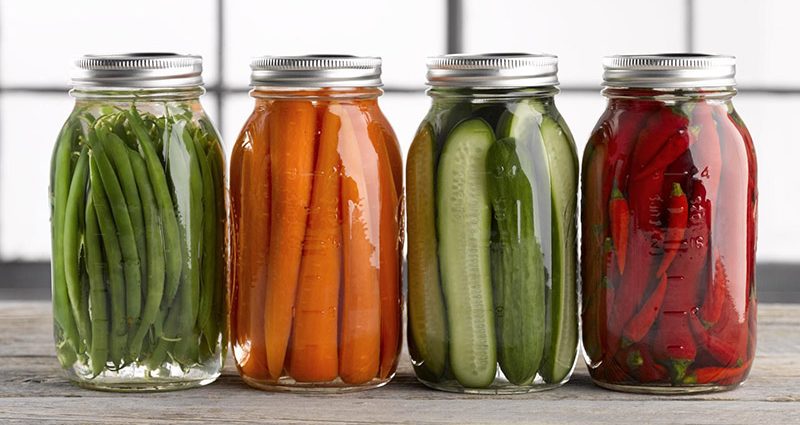As survivalists we like to be prepared. Food is one key item we need to have around. In the event of a crisis, we may have reduced access to easy food. Prolonging the life of your food is a good idea in every-day life to save money, but an even better idea when there is some kind of crisis that you might need to ride through.
Prolonging Produce
Take a look at what you have in your refrigerator or on your countertop right now. Chances are, you will see produce that you haven’t gotten around to eating. It may be starting to look wilted or moldy. One of the reasons for this is the release of ethylene gas from certain fruits and vegetables. This gas is actually a natural plant hormone which is responsible for ripening and causes fruits and vegetables to turn soft. Some fruits and vegetables, such as apples, ripe bananas, and onions, produce more ethylene gas than others. Conversely, other fruits and vegetables, such as strawberries and potatoes, spoil more quickly when exposed to it. Therefore, it makes sense to separate the two both in and out of the refrigerator.
Delaying Dairy
Prevention Magazine states that milk should be bought last when shopping and should be kept at the back of the refrigerator where the temperature is coldest. Eggs and yoghurt should be stored in their original containers on the refrigerator shelf. Wrapping hard cheese in foil or plastic can extend its shelf life. All of these items can actually be eaten well past their sell-by date. EatByDate.com is a helpful website for determining how long dairy products can last.
More Time For Meat
Raw meat can last from one to five days in the refrigerator, depending on the type. Generally, red meat and pork can last up to five days, poultry, ground meats, and sausage between one to two days, and bacon up to a week. Freezing meat prevents waste, but be careful how long you leave it in the freezer. Whereas poultry and red meat can last up to a year, ground meats, sausage, and bacon must be eaten within two months.
Longer Life For Loaves
Keeping bread in the refrigerator is a common practice for preventing mold. Bread can also be frozen for up to a year. You can also put half of a new loaf of bread in the refrigerator and half in the freezer, depending on how much bread you consume.
Methods For Long-Term Food Preservation
Canning is an excellent way to keep food for long periods. Fruits, vegetables, and meats are placed in sealed jars and then heated or pressurized in order to destroy harmful microorganisms. The food is safe to eat for one to five years.
Dehydration is a process in which food is dried so that microbes cannot survive. Dehydrated food can be stored at room temperature and later reconstituted with water or eaten dry. The process is often done in a conventional oven or by using an electric dehydrator. Other methods include air drying, solar drying, and pit oven drying.
Fermenting is a process which introduces beneficial microbes to food in order to counteract the harmful ones. This is how wine, beer, and cider are made, as well as foods such as sauerkraut and yoghurt. Fermenting does not require special equipment and is relatively easy.
Often combined with fermenting is the process of pickling, in which foods are soaked in a solution of alcohol, salt, or acid. Most foods can be pickled, including fruits, vegetables, meats, and eggs. It is important, however, to observe safety guidelines when pickling.
Implementing any of these food-saving tips should help you to save money and will benefit the environment. Considering when you plan to eat the food you buy and how you plan to store it for the future can change your budgeting and meal-planning habits. Less waste means more cash!

